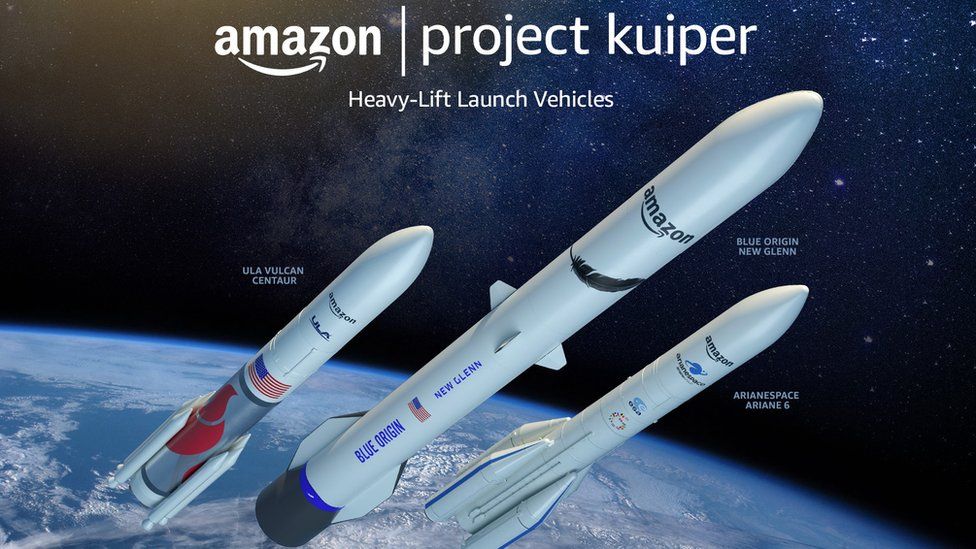Over the next five years, three heavy-lift rockets will put thousands of satellites into low Earth orbit as part of Amazon’s Project Kuiper, the BBC reports.
The project aims to provide broadband connections using a constellation of 3,236 satellites. Rival Starlink is said to have more than 2,300 satellites in orbit already.
The rockets will be made by Arianespace, Blue Origin – which was founded by Amazon owner Jeff Bezos – and United Launch Alliance.
Amazon says Project Kuiper aims to provide high-speed, low-latency broadband to customers including households, businesses, government agencies, disaster relief operations, mobile operators, and other organizations “working in places without reliable internet connectivity.”
Like Elon Musk’s Starlink, users will connect to the Internet via a terminal that communicates with the satellites. Amazon says its experience in shipping and making products such as Echo and Kindle will be useful in producing and distributing these.
“Project Kuiper will provide fast, affordable broadband to tens of millions of customers in unserved and underserved communities around the world,” said Dave Limp, senior vice-president for Amazon Devices & Services, in a statement announcing the deal.
Amazon plans 83 launches over the next five years, saying it constitutes “the largest commercial procurement of launch vehicles in history.”
The firm plans two “prototype” missions later this year – but using a rocket made by ABL Space Systems, and not the three that will launch the bulk of the satellites.
Unlike Elon Musk’s Falcon 9 rockets, the three new rockets used for Project Kuiper’s launches are still in development.
Another satellite internet firm OneWeb, which is part-owned by the British government, recently decided to use SpaceX Falcon 9 rockets after losing access to the Russian-built Soyuz rockets, following the invasion of Ukraine.
Musk intends to launch as many as 30,000 Starlink satellites into space.
The value of this type of low-earth orbit satellite internet has already been demonstrated in Ukraine, where the United States Agency for International Development said, in conjunction with SpaceX, it had helped ship a total of 5,000 Starlink terminals to the country’s government.
But, as low-earth orbit becomes increasingly congested, astronomers have complained that the light reflected from these satellites as they pass overhead increasingly disrupts the view of the night sky.
Astro-photographer Mary McIntyre said on Twitter: “The satellites are literally destroying our beautiful night sky.”
There are also concerns that so many satellites in orbit exacerbates the risk of collision and the problem of space junk.


